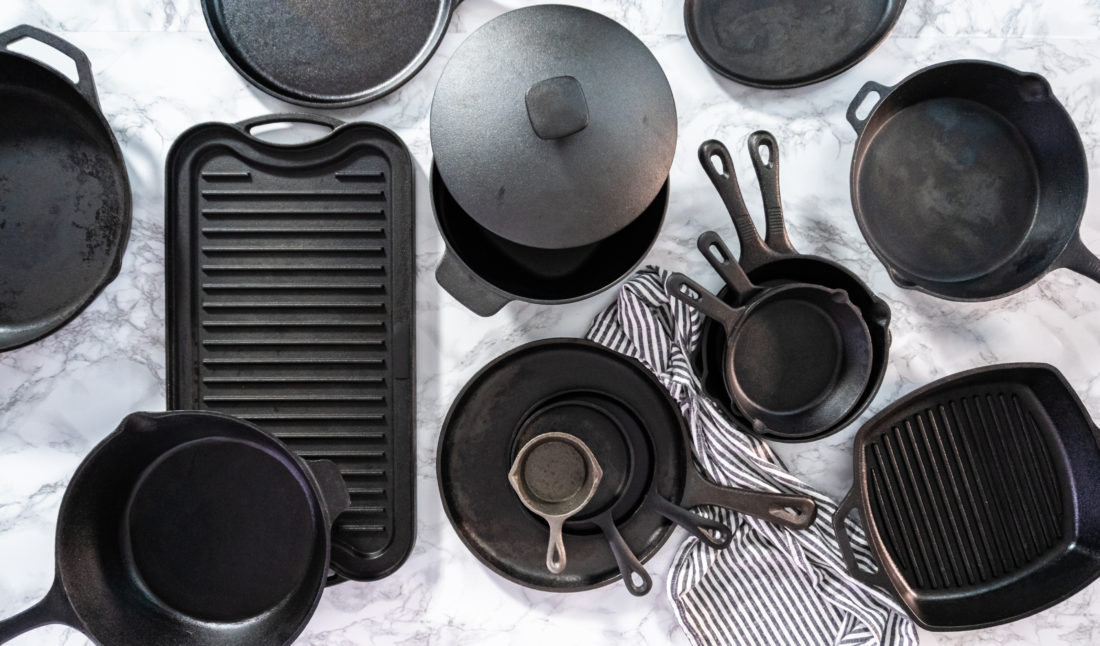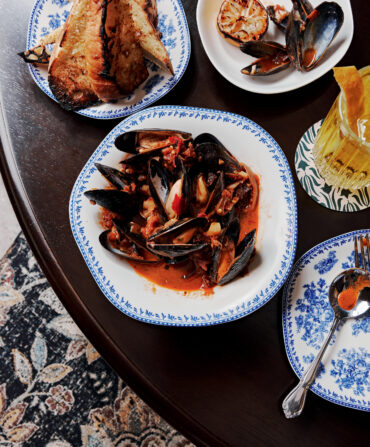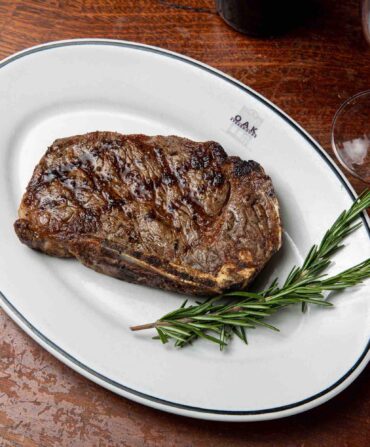Cast-iron cookware straddles a unique line in the hearts of Southern chefs: It’s both a utilitarian essential, like, say, the electric mixer (“The heat retention in the cast iron is so much better, and in turn, you have a better tasting dish,” says Nina Compton of Compère Lapin in New Orleans), as well as a sentimental heirloom, akin to Grandma’s silver (“It’s like your first car or first dog—I hold my favorite cast iron near and dear,” says Shuai Wang of Jackrabbit Filly in North Charleston, South Carolina).
But the fact that it’s universally beloved doesn’t mean it’s easy to care for. Conflicting information on how best to maintain cast iron abounds on the internet and in family culinary lore. And while nothing you’re wont to do will likely ruin it—aside from throwing it in the dishwasher with your stoneware and stainless steel—Southern chefs have three major rules for keeping your cast iron at the top of its game.
Keep It Clean
“Clean your cast iron after every use, and clean it while it’s still hot,” Wang says. “If you have stuck-on gunk, the best way to get it clean is to pour a good amount of kosher salt in it and burn it over as high a heat as possible.” Scrape the salt (and the gunk) with a rag, he says. When it’s cool, toss out the salt and then wipe it clean with a dry towel.
Isaac Toups grew up catching, cleaning, and frying fish in cast-iron skillets at his father’s fish camp on the Gulf of Mexico. Now as an adult and chef at Toups Meatery in New Orleans, he owns a cast-iron pan in every size, including his prized Dutch oven in which he stews gumbo and couvillion for crowds. “They work great, they look cool, and they last several lifetimes,” he says. “The number one thing I tell people about taking care of cast iron is to not wash them with water or soap. After each use, scrub them down with salt.”
While the use of water—and, especially soap (read more about that controversial subject here)—sparks heated debate, there’s one rule most everyone agrees on. “Do not put in the dishwasher,” Compton says. “Simply rinse quickly and dry well and wipe it out with an oiled towel. The more layers that develop on a cast iron the better.”
Keep It Seasoned
“A well-seasoned skillet shines with beauty and brawn,” says the Georgia chef and writer Virginia Willis. Ming Pu, who has cooked in and around Louisville, Kentucky, for the last decade, agrees: “It’ll rust away in storage if you don’t use it, so try to season it at least once a month.”
Although Toups uses his pans frequently, he still likes to re-season after every meal. “Wipe it down with a high-heat oil like grapeseed oil or refined avocado oil. This will preserve them and keep them in great condition,” he says.
Although Wang’s most prized pan came already worn and well-seasoned—he bought it for eight dollars from an antique shop he discovered on a road trip in Pennsylvania—he still stresses the importance of upkeep. “Keep your cast iron seasoned even when you’re not using it so it’s always ready to go,” he says. “This will also keep your cast iron from rusting. Remember to season the inside, outside, and handle of your cast iron.”
Keep It Dry
“Hands down, the most important thing you must do with cast iron is to dry it well,” Willis says. “I wash and dry mine thoroughly and store the primary suspects in the oven.”
When the Charleston pit master John Lewis was eighteen, his dad gave him an old Griswold cast-iron pan that he had found in an antique shop. “It’s special not only because of its sentimental value, but I also really like that it’s not porous like other skillets. The surface is really smooth, and I find it easier to cook with,” he says. “If you treat it right, a good cast-iron pan should last you a lifetime.” For Lewis, treating it right means keeping it dry. “I’ve always been told that water is the enemy when it comes to cast iron,” he says. “I like to use a mixture of salt and oil to clean it out, but if you need to use a little water to really clean it, make sure you dry it thoroughly before adding a little oil—I like grapeseed—to re-season it. Never let it dry wet.”
Like Lewis, Katie Button, of Asheville’s Cúrate, uses her grandmother’s hand-me-down chrome-plated Griswold and was raised with similar advice. “Make sure it is kept dry and oiled at all times,” she says. “This will keep it from rusting and keep it in good shape.”
Oh, and Keep It Simple
Everyone has an opinion on the subject, but perhaps Nashville chef Karl Worley puts it best. “Don’t overcomplicate it. Too much information is as dangerous as no information,” he says. “Cook in it, wipe it clean, and if something doesn’t want to come out, use a hard-plastic spatula to scrape it off. If you flake off the seasoning in that area, no worries. You’re using it tomorrow right?”








